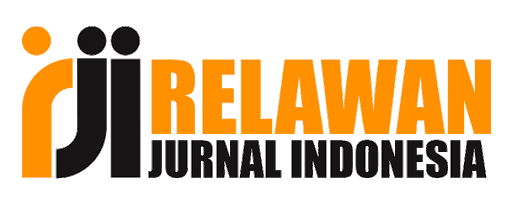Legal Politics Of Waqf-Regulation In Indonesia
DOI:
https://doi.org/10.51311/nuris.v6i1.122Keywords:
Wakaf, Politik Hukum, Peraturan Perundang-undanganAbstract
The study investigates the government policies in the waqf's regulation in Indonesia and the essence of waqf as an important instrument of economic empowerment in Islam. The study aims to provide solutions to the lack of the benefits of waqf for people's welfare, especially in terms of economic empowerment. It is qualitative research with a normative approach. The research data used is the secondary data from library resources. An analysis of the data is by interpreting the concept. The result of this study shown that waqf has played a major role in citizen empowerment from the time of God's messenger, Muhamad peace be upon him until now, even the benefits of a waqf can still be felt up to today.
Keywords: waqf, political law, legislation.
Downloads
References
Aji, Ahmad Mukri. Urgensi Maslahat Mursalah Dalam Dialektika Pemikiran Hukum Islam, Bogor: Pustaka Pena Ilahi, 2012.
Al-Arif, M. Nur Rianto. “Pemberdayaan Masyarakat Berbasis Waqf Uangâ€, Jurnal Asy-Syir’ah, Vol. 44, No. II, Tahun 2010.
Al-Hadi, Abu Azam. “Upaya Pemberdayaan Tanah Waqf Produktif Bagi Kesejahteraan Umatâ€, Jurnal Islamica, Vol. 4, No. 1, September 2009.
Al-Zuhaily, Wahbah. Al-Fiqh al-Islamy wa Adillatuh, Beirut: Dar al-Fikr, 1981.
Beik, Irfan Syauqi; dan Arsyianti, Laily Dwi. Ekonomi Pembangunan Syariah, Jakarta: PT. Rajagrafindo Persada, 2016.
Budiman, A. Arif. “Akuntabilitas Pengelola Waqfâ€, Jurnal Walisongo, Volume 19, Nomor 1, Mei 2011.
Budiman, A. Arif. “Waqf dalam Diskursus Fiqh Kontemporer Perspektif Majelis Tarjih Muhammadiyahâ€, Jurnal Tajdid, Vol. 15, No. 2, Desember 2017.
Daulay, Raihanah. “Pengembangan Usaha Mikro Untuk Pemberdayaan Ekonomi Umat Islam di Kota Medanâ€, Jurnal Miqot, Vol. XL, No. 1, Januari-Juni 2016.
Ghafur, Ruslan Abdul. Konsep Distribusi dalam Ekonomi Islam dan Format Keadilan Ekonomi di Indonesia, Yogyakarta: Pustaka Pelajar, 2013.
Hakim, Abdul. “Manajemen Harta Waqf Produktif dan Investasi dalam Sistem Ekonomi Syari’ahâ€, Jurnal Riptek, Vol. 04, No. II, Tahun 2010.
Ibrahim, Haslindar; Amir, Afizar; Masron, Tajul Ariffin. “Cash Waqf; An Innovative Instrument for Economic Developmentâ€, Jurnal International Review of Social Sciences and Humanities, Vol. 6, No. 1 (2013).
Kasdi, Abdurrahman. “Model Pemberdayaan Waqf Produktif di Indonesiaâ€, Jurnal Ziswaf, Vol. 1, No. 1, juni 2014.
Kasdi, Abdurrahman. “Filantropi Islam Untuk Pemberdayaan Ekonomi Umat; Model Pemberdayaan Ziswaf di BMT Se-Kabupaten Demakâ€, Jurnal Iqtishadia, Vol. 9, No. 2, 2016.
Machmud, Amir. Ekonomi Islam Untuk Dunia yang Lebih Baik, Jakarta: Salemba Empat, 2017.
Mansor, Noorhayati; Jamil, Amira; Bahari, Asniati. “Integrated Waqf Reporting Systemâ€, International Journal of Accounting, Finance, and Business, Volume 2, Issues 6, December 2017.
Medias, Fahmi. “Waqf Produktif dalam Perspektif Ekonomi Islam,†La Riba; Jurnal Ekonomi Islam, Volume IV, No. 1, Juli 2010.
Nadzir, Mohammad. “Membangun Pemberdayaan Ekonomi di Pesantrenâ€, Jurnal Economica, Volume VI, Edisi 1, Mei 2015.
Ramli, Nathasa Mazna; Salleh, Nurul Husna Mohd; dan Muhamed, Nurul Aini. “Discharging Accountability Through Governance; Cases from Waqf Institutions in Indonesiaâ€, Online Journal Research in Islamic Studies, Vol. 2, No. 1 (2015).
Rozalinda, 2016. Fikih Ekonomi Islam, Jakarta: PT. Raja Grafindo Persada, 2016.
Uyun, Qurratul, “Zakat, Infaq, Shadaqah, dan Waqf Sebagai Konfigurasi Filantropi Islamâ€, Jurnal Islamuna, Volume 2, Nomor 2, Desember 2015.
Zamzam, Fakhry; & Aravik, Havis. Kamus Bisnis Syariah, Yogyakarta: Deepublish, 2016.
Zahrotunnimah, Zahrotunnimah; Yunus, Nur Rohim; Susilowati, Ida. "Rekonstruksi Teori Komunikasi Politik Dalam Membangun Persepsi Publik," dalam Jurnal Staatsrecht: Indonesian Constitutional Law Journal, Volume 2, Nomor 2 (2018).
Downloads
Published
How to Cite
Issue
Section
License
NUR EL ISLAM Journal is an Open Access Journal. The authors who publish the manuscript in this journal agree to the following terms:
(1) The formal legal provisions for access to digital articles of this electronic journal are subject to the terms of the Creative Commons Attribution 4.0 International License (CC BY 4.0), which means that Nur El Islam reserves the right to save, transmit media or format, Database), maintain, and publish articles without requesting permission from the Author as long as it keeps the Author's name as the owner of Copyright.
(2) The reproduction of any part of this journal, its storage in databases and its transmission by any form or media, such as electronic, electrostatic and mechanical copies, photocopies, recordings, magnetic media, etc., will be allowed only with a written permission from Nur El Islam.








